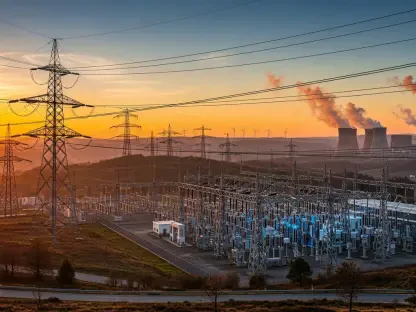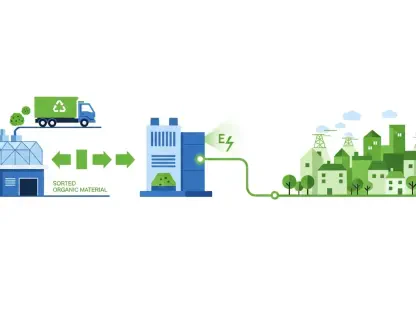In an era where environmental challenges demand innovative solutions, sustainability professionals stand at the forefront of driving meaningful change, yet many find themselves grappling with the complexities of advancing their careers in a rapidly evolving field. The pressure to balance technical expertise with the ability to inspire, collaborate, and adapt can be overwhelming, especially when navigating stakeholder resistance or regulatory shifts. A recent collection of short, impactful videos has emerged as a vital resource, offering actionable insights into the soft skills and strategies necessary to thrive. These concise guides delve into areas often overlooked in traditional training, such as empathetic leadership and effective communication, equipping change-makers with tools to excel beyond their technical know-how. By focusing on professional development, this curated content addresses the multifaceted demands of the sustainability sector, promising to bridge the gap between expertise and influence.
Building Core Competencies for Impact
Redefining Leadership with Purpose
Sustainability professionals often face the challenge of leading teams and initiatives in high-stakes environments where traditional hierarchical approaches fall short. A compelling perspective on leadership emerges from the idea of purpose-driven management, which prioritizes empowerment over control. This approach encourages leaders to inspire rather than dictate, fostering a sense of shared mission among diverse stakeholders. By focusing on aligning team goals with broader environmental objectives, professionals can cultivate trust and motivation. Such a mindset is particularly crucial in a field where passion for change must translate into actionable outcomes. Emphasizing empathy as a cornerstone of leadership allows for stronger connections with colleagues and communities alike. This shift in thinking helps dismantle outdated notions of authority, replacing them with a model that values collaboration and mutual respect, ultimately driving more sustainable results in complex projects.
Mastering Communication for Advocacy
Effective communication stands as a pivotal skill for sustainability experts, especially when engaging with skeptics or diverse audiences on topics like climate change. Rather than relying on lectures or data-heavy arguments, the emphasis should be on active listening and understanding opposing viewpoints to build rapport. This strategy transforms contentious discussions into opportunities for dialogue, fostering mutual understanding over confrontation. Tailoring messages to resonate with specific concerns—whether economic, social, or ethical—can significantly enhance persuasion. For professionals in this space, the ability to distill complex issues into relatable narratives is invaluable, particularly when advocating for policy changes or community initiatives. By honing this skill, sustainability leaders can bridge divides, turning resistance into support and amplifying their impact on critical environmental issues through thoughtful, empathetic engagement.
Enhancing Personal and Professional Growth
Building Resilience Under Pressure
The sustainability field often subjects professionals to intense pressure, with high expectations and constant challenges like workplace stress or stakeholder pushback. Developing resilience becomes essential to maintain performance and well-being in such demanding roles. Insights into stress management reveal the importance of distinguishing between adaptive responses, which help in overcoming obstacles, and maladaptive ones that hinder progress. Techniques such as mindfulness and structured reflection can rewire mental approaches to stress, enabling professionals to stay focused and composed. This not only preserves personal health but also ensures consistent leadership during crises. For those navigating the emotional toll of advocating for change, building resilience acts as a buffer, allowing them to sustain their commitment to long-term goals without succumbing to burnout or frustration in an ever-evolving landscape.
Preparing for Career Milestones
Advancing in the sustainability sector requires meticulous preparation for key career moments, such as job interviews or promotions, where both industry knowledge and self-presentation play critical roles. Tailored guidance on addressing common and sector-specific questions can boost confidence, ensuring candidates articulate their value effectively. Beyond rehearsing responses, understanding how to convey passion and expertise through body language and tone adds a layer of polish to professional interactions. This preparation extends to anticipating challenges unique to the field, such as explaining complex environmental strategies to non-expert panels. By blending technical acumen with interpersonal finesse, sustainability professionals position themselves as standout candidates. Such readiness not only opens doors to new opportunities but also reinforces the credibility needed to lead initiatives that demand trust and vision in a competitive job market.
Reflecting on Transformative Insights
Lessons Learned for Lasting Change
Looking back, the journey through various professional development resources revealed a profound shift in how sustainability experts approached their roles. The emphasis on blending soft skills with technical expertise proved transformative, as many discovered that leadership was less about control and more about inspiring shared purpose. Communication strategies that prioritized listening over preaching reshaped interactions with skeptics, turning potential conflicts into constructive conversations. These lessons, drawn from diverse perspectives, underscored that success in this field demanded a holistic skill set, one that balanced advocacy with personal resilience.
Moving Forward with Strategic Growth
As sustainability challenges continue to evolve, the insights gained point toward actionable next steps for professionals eager to elevate their impact. Prioritizing continuous learning in areas like time management and creative collaboration emerges as a practical way to stay ahead. Additionally, fostering resilience through structured stress management offers a foundation for enduring high-pressure environments. By integrating these strategies, sustainability leaders can navigate future complexities with confidence, ensuring they not only adapt to change but also drive it with innovative, inclusive approaches.









